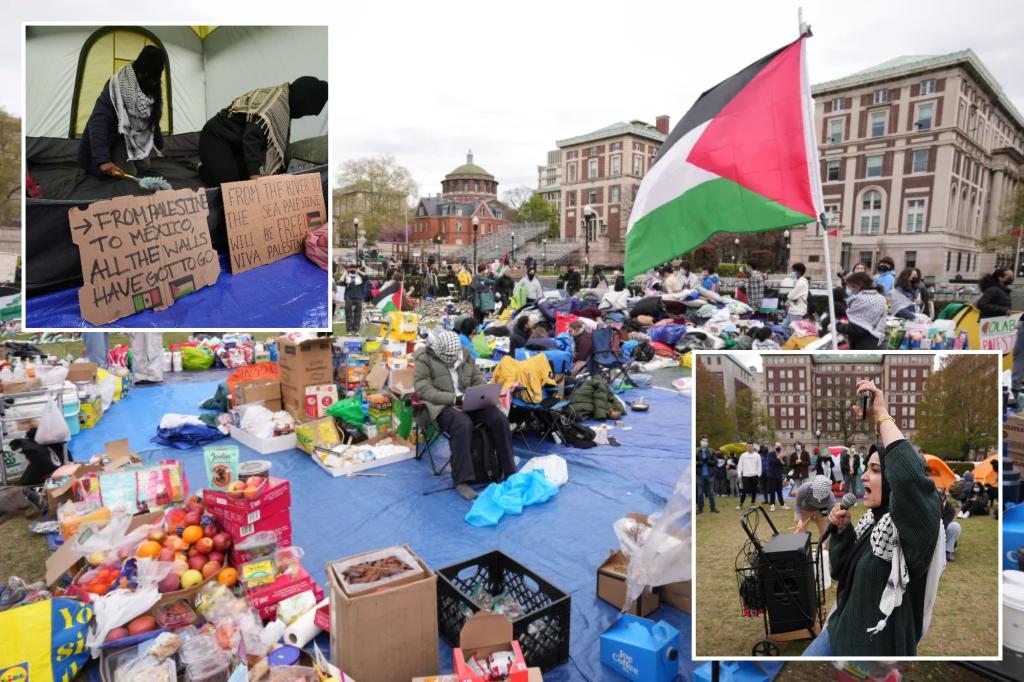A new anti-Israel tent city took over Columbia University just days after an NYPD raid cleared another intrusive encampment at the school. More than 30 tents were set up on the school’s West Lawn, along with piles of supplies. A prominent rabbi at the school urged Jewish students to stay home as the upheaval has become intolerable. The protesters want the university to divest from Israel and have vowed to continue until their demands are met.
The protesters, made up of students, have been encamped for five days now, with supporters providing food and supplies to sustain them. The tent city has become a community where people stay overnight and meals are shared. Despite previous attempts by the university to crack down on antisemitism, the protesters remain firm in their demands and are willing to stay as long as necessary to achieve their goals of divestment from Israel.
The police had previously cleared the encampment, arresting 108 protesters, but they returned quickly and continued their demonstration. A student leader claimed that the administration had allowed the tents to remain for a week, but a university representative refuted this, stating that the tents were in violation of university policy. The goal of the protesters is to provoke the administration and maintain pressure until their demands are met.
Protesters are taking shifts to stay and sleep at the encampment, even during finals week. The historic significance of the moment and the desire to make an impact on the university’s decision-making process are driving the students to continue their protest. Despite the challenges of juggling schoolwork with the protest, students are determined to stay until their demands are met. They are also making arrangements for remote learning options in case of disciplinary actions that may arise from their protest activities.
The anti-Israel protests on college campuses have increased following the conflict between Hamas and Israel. Jewish students, in particular, have expressed concerns about the atmosphere of fear and paranoia on campuses. Students describe an environment of racism, surveillance, and fear of being identified. Some exams have been postponed, and papers extended to accommodate the ongoing protests. The wave of antisemitic sentiments on campuses has heightened tensions and affected the academic environment for many students.
Despite the university’s attempts to address antisemitism, the protesters remain steadfast in their demands for divestment from Israel. The standoff between the administration and students continues, with neither side backing down. The tent city at Columbia University serves as a symbol of student activism and resistance against perceived injustices. The ongoing protests have captured national attention and raised questions about the balance between freedom of speech and the consequences of disruptive demonstrations on academic campuses. The future of the protest and its impact on university policies remain uncertain as the students press on with their campaign.


